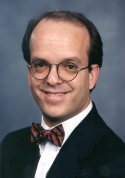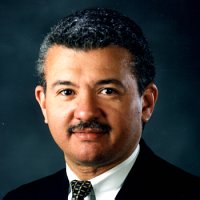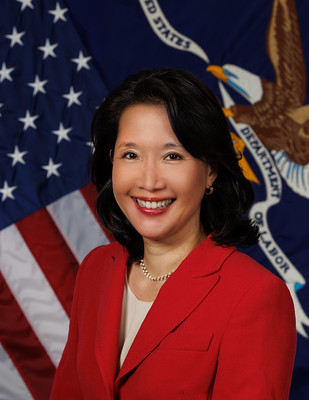Judgment
Supreme Court
The question presented was whether a university enjoys a special privilege, grounded either in the common law or the First Amendment, against disclosure of peer review materials that are relevant to charge or racial or sexual discrimination in tenure decisions. The University argued for recognition of a common law privilege against disclosure of confidential peer review materials, and for a First Amendment right of academic freedom against disclosure of the documents. In either case, the University sought a requirement of judicial finding of particularized necessity of access, beyond showing of mere relevance, before peer review materials could be disclosed to the EEOC.
The EEOC argued that it possesses a broad Congressional mandate to investigate and remedy employment discrimination on the basis of race, color, religion, sex, or national origin, and that any infringement of the University's First Amendment rights is permissible because of the substantial relation between the EEOC's request and the overriding and compelling state interest in eradicating invidious discrimination.
Justice Blackmun, writing for a unanimous Court, declined to create a new privilege against the disclosure of peer review materials, and held that the First Amendment right of academic freedom would not be expanded to protect the materials from disclosure.
The Court found that the University did not meet the high burden needed to create a new common law evidentiary privilege, as the privilege sought did not promote sufficiently important interests to outweigh the need for probative evidence. The Court was satisfied that Congress, in granting power to the EEOC, considered academic freedom and declined to carve out an evidentiary privilege for it. And that, while "confidentiality is important to the proper function of the peer review process," the "costs associated with racial and sexual discrimination in institutions of higher learning are very substantial." [3]
The Court noted the special status of universities in a democratic society, and the "essential freedom" that a university possesses "to determine for itself on academic grounds who may teach." [4] However, the Court held that the EEOC's subpoenas are not intended or do not in fact direct the content of university discourse toward or away from particular subjects or points of view. Nor was the EEOC "providing criteria [the University] must use in selecting teachers, [or] preventing the University from using any criteria it may wish to use, except those--including race, sex, and national origin--that are proscribed under Title VII." [5]
The Court held that the University was not entitled to a common law evidentiary privilege protecting tenure review materials, and that the EEOC subpoena process did not infringe any First Amendment right enjoyed by the University.
Arguments regarding particularized necessity of access were not addressed, nor were the EEOC's arguments regarding its Congressional mandate and the compelling state interest of eliminating employment discrimination.

The Civil Rights Act of 1964 is a landmark civil rights and labor law in the United States that outlaws discrimination based on race, color, religion, sex, and national origin. It prohibits unequal application of voter registration requirements, racial segregation in schools and public accommodations, and employment discrimination. The act "remains one of the most significant legislative achievements in American history".
A subpoena duces tecum, or subpoena for production of evidence, is a court summons ordering the recipient to appear before the court and produce documents or other tangible evidence for use at a hearing or trial. In some jurisdictions, it can also be issued by legislative bodies such as county boards of supervisors.

The U.S. Equal Employment Opportunity Commission (EEOC) is a federal agency that was established via the Civil Rights Act of 1964 to administer and enforce civil rights laws against workplace discrimination. The EEOC investigates discrimination complaints based on an individual's race, color, national origin, religion, sex, age, disability, genetic information, and retaliation for participating in a discrimination complaint proceeding and/or opposing a discriminatory practice.
The Equal Protection Clause is part of the first section of the Fourteenth Amendment to the United States Constitution. The clause, which took effect in 1868, provides "nor shall any State ... deny to any person within its jurisdiction the equal protection of the laws." It mandates that individuals in similar situations be treated equally by the law.
First adopted in 1975, the Federal Rules of Evidence codify the evidence law that applies in United States federal courts. In addition, many states in the United States have either adopted the Federal Rules of Evidence, with or without local variations, or have revised their own evidence rules or codes to at least partially follow the federal rules.

Equal employment opportunity is equal opportunity to attain or maintain employment in a company, organization, or other institution. Examples of legislation to foster it or to protect it from eroding include the U.S. Equal Employment Opportunity Commission, which was established by Title VII of the Civil Rights Act of 1964 to assist in the protection of United States employees from discrimination. The law was the first federal law designed to protect most US employees from employment discrimination based on that employee's race, color, religion, sex, or national origin.

Naomi Churchill Earp is an American lawyer and government official from Maryland and Virginia. From 2007 to 2009 she served as chair of the United States Equal Employment Opportunity Commission, where she established the Youth At Work Program. She was designated by President George W. Bush in 2006, succeeding Cari M. Dominguez. Prior to her appointment as Chair, she had served as vice chair of the commission since 2003.
Employment discrimination law in the United States derives from the common law, and is codified in numerous state, federal, and local laws. These laws prohibit discrimination based on certain characteristics or "protected categories." The United States Constitution also prohibits discrimination by federal and state governments against their public employees. Discrimination in the private sector is not directly constrained by the Constitution, but has become subject to a growing body of federal and state law, including the Title VII of the Civil Rights Act of 1964. Federal law prohibits discrimination in a number of areas, including recruiting, hiring, job evaluations, promotion policies, training, compensation and disciplinary action. State laws often extend protection to additional categories or employers.

Paul Steven Miller was the Henry M. Jackson Professor of Law at the University of Washington School of Law. He was a Commissioner of the Equal Employment Opportunity Commission (EEOC) for almost 10 years, and in 2009 he was chosen to serve as a special assistant to President Barack Obama. Miller, who had the genetic condition achondroplasia was 4 feet 5 inches (135 cm) tall. He was known as a leader in the disability rights movement, and an expert on anti-discrimination law and international disability rights.

Chai Rachel Feldblum is an American author and activist for disability and LGBT rights. A former law professor at Georgetown University Law Center, she served as Commissioner at the Equal Employment Opportunity Commission. She was nominated to the position on the EEOC by president Barack Obama in 2009. In April 2010, she received a recess appointment to the EEOC, and in December 2010 she was confirmed to serve on the EEOC by the United States Senate. The Senate confirmed her in December 2013 for a second term on the Commission which expired in July 2018.

Gilbert F. Casellas is an American lawyer and businessman. He is a private investor and business consultant in the Washington, D.C. area, a director of Prudential Financial, trustee of the University of Pennsylvania, and advisor to Toyota Motor North America, The Procter & Gamble Company, and Comcast Corporation. He is a member of the Council on Foreign Relations, the American Law Institute, trustee of the Pan American Development Foundation and Co-Editor-in-Chief of Workplace Harassment Second Edition 2018 published by Bloomberg Law.

LGBT employment discrimination in the United States is illegal under Title VII of the Civil Rights Act of 1964; employment discrimination on the basis of sexual orientation or gender identity is encompassed by the law's prohibition of employment discrimination on the basis of sex. Prior to the landmark cases Bostock v. Clayton County and R.G. & G.R. Harris Funeral Homes Inc. v. Equal Employment Opportunity Commission (2020), employment protections for LGBT people were patchwork; several states and localities explicitly prohibit harassment and bias in employment decisions on the basis of sexual orientation and/or gender identity, although some only cover public employees. Prior to the Bostock decision, the Equal Employment Opportunity Commission (EEOC) interpreted Title VII to cover LGBT employees; the EEOC determined that transgender employees were protected under Title VII in 2012, and extended the protection to encompass sexual orientation in 2015.
Religious discrimination in the United States is valuing or treating a person or group differently because of what they do or do not believe. Specifically, it occurs when adherents of different religions are treated unequally, either before the law or in institutional settings such as employment or housing.
Sexual harassment in the workplace in US labor law has been considered a form of discrimination on the basis of sex in the United States since the mid-1970s. There are two forms of sexual harassment recognized by United States law: quid pro quo sexual harassment and behavior that creates a hostile work environment. It has been noted that a number of the early sexual harassment cases were brought by African American women and girls.

Victoria Ann Lipnic is an American lawyer and public figure. She served in multiple senior United States government positions. She was Commissioner of the U.S. Equal Employment Opportunity Commission (EEOC), nominated to two terms by President Barack Obama, 2010 – 2020.) She served as Chair (Acting) of the EEOC under President Donald J. Trump from 2017 – 2019. Prior to her appointments to the EEOC, she was Assistant Secretary of Labor under President George W. Bush. The United States Senate confirmed her unanimously to each of these positions.
Hate speech in the United States cannot be directly regulated by the government due to the fundamental right to freedom of speech protected by the Constitution. While "hate speech" is not a legal term in the United States, the U.S. Supreme Court has repeatedly ruled that most of what would qualify as hate speech in other western countries is legally protected speech under the First Amendment. In a Supreme Court case on the issue, Matal v. Tam (2017), the justices unanimously reaffirmed that there is effectively no "hate speech" exception to the free speech rights protected by the First Amendment and that the U.S. government may not discriminate against speech on the basis of the speaker's viewpoint.
R.G. & G.R. Harris Funeral Homes Inc. v. Equal Employment Opportunity Commission, 590 U.S. ___ (2020), is a landmark United States Supreme Court case which ruled that Title VII of the Civil Rights Act of 1964 protects transgender people from employment discrimination.
Bostock v. Clayton County, 590 U.S. ___ (2020), is a landmark United States Supreme Court civil rights case in which the Court held that Title VII of the Civil Rights Act of 1964 protects employees against discrimination because they are gay or transgender.
Our Lady of Guadalupe School v. Morrissey-Berru, 591 U.S. ___ (2020), was a United States Supreme Court case involving the ministerial exception of federal employment discrimination laws. The case extends from the Supreme Court's prior decision in Hosanna-Tabor Evangelical Lutheran Church & School v. Equal Employment Opportunity Commission which created the ministerial exception based on the Establishment and Free Exercise Clauses of the United States Constitution, asserting that federal discrimination laws cannot be applied to leaders of religious organizations. The case, along with the consolidated St. James School v. Biel, both arose from rulings in the United States Court of Appeals for the Ninth Circuit that found that federal discrimination laws do apply to others within a religious organization that serve an important religious function but lack the title or training to be considered a religious leader under Hosanna-Tabor. The religious organization challenged that ruling on the basis of Hosanna-Tabor. The Supreme Court ruled in a 7–2 decision on July 8, 2020 that reversed the Ninth Circuit's ruling, affirming that the principles of Hosanna-Tabor, that a person can be serving an important religious function even if not holding the title or training of a religious leader, satisfied the ministerial exception in employment discrimination.

Jenny Rae Yang is an American attorney and public official. In 2021, Yang was appointed by President Joe Biden to serve as the Director of Office of Federal Contract Compliance Programs, an agency within the Department of Labor.










